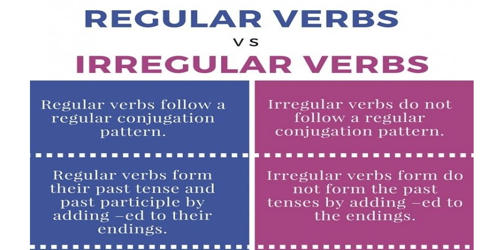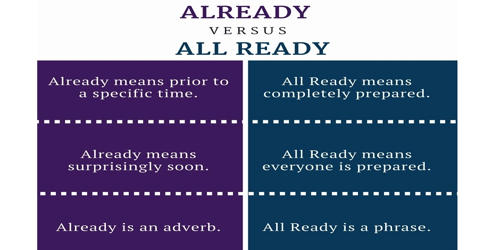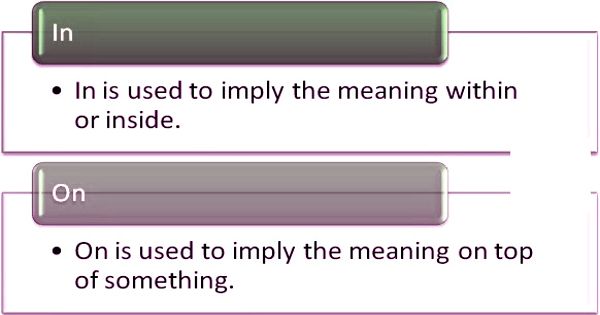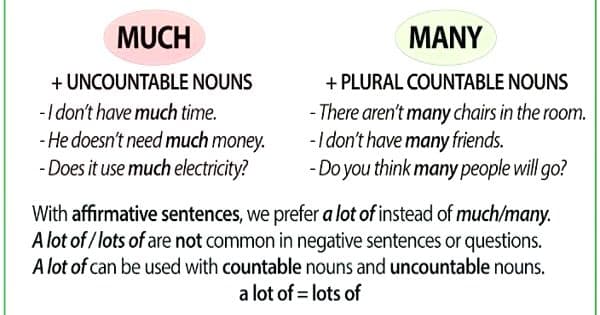Verbs are a part of grammar which is an important part to frame a sentence. There are certain forms which a verb can take, called as ‘principal parts of verbs‘, these are infinitive, the third person present, simple past, past participle, and present participle. The difference between regular and irregular verbs is the formation of the simple past and past participle. If you take a glance at these forums, you’ll notice that there are some verbs whose simple past and past participle have a set or fixed ending which are called Regular Verbs. Regular verbs are dependably consistent—the simple past ends in ed as does the past participle.
Conversely, there are certain verbs that either change their forms completely or remain the same, these are known as Irregular Verbs. While regular verbs follow a pattern of inflection, Irregular verbs end in different ways, i.e. its simple past and past participle forms are either purely different from its base form or they are similar to the base form.
Difference between Regular and Irregular Verbs
REGULAR VERBS
- Regular Verbs are the verbs with usual simple past and past participle forms.
- The regular verb can be described as the verb that follows the standard rule in the creation of simple past and past participle forms.
- Regular Verbs refers to the verbs that depend on the basic pattern of inflection. Inflection means the variation in the form of a word, usually in the end, to describe the tense, mood, number, gender, and so forth.
- The formation of tenses in regular verbs, particularly the past tense forms, i.e. simple past and past participle, is done by adding a predefined suffix, i.e., -d, -ed, or -ied to the present infinitive.
- For instance, for a regular verb ending in a vowel; Present tense: share; Past tense: shared; Past perfect tense: had shared; Present perfect tense: have shared.
IRREGULAR VERBS
- Irregular verbs refer to the verbs which have the same or different present and past tense forms.
- The ‘Irregular’ verbs are the verbs having their own set of rules, to create past tense forms.
- An irregular verb is a type of strong verb, which has some special rules for creating past tense forms.
- These verbs do not end with -d, -ed, or -ied, rather they change their forms completely, in a sense that the irregular verbs are transformed into an entirely different word.
- For instance, for an irregular verb; Present tense: go; Past tense: went; Past perfect tense: had gone; Present perfect tense: have gone.
















